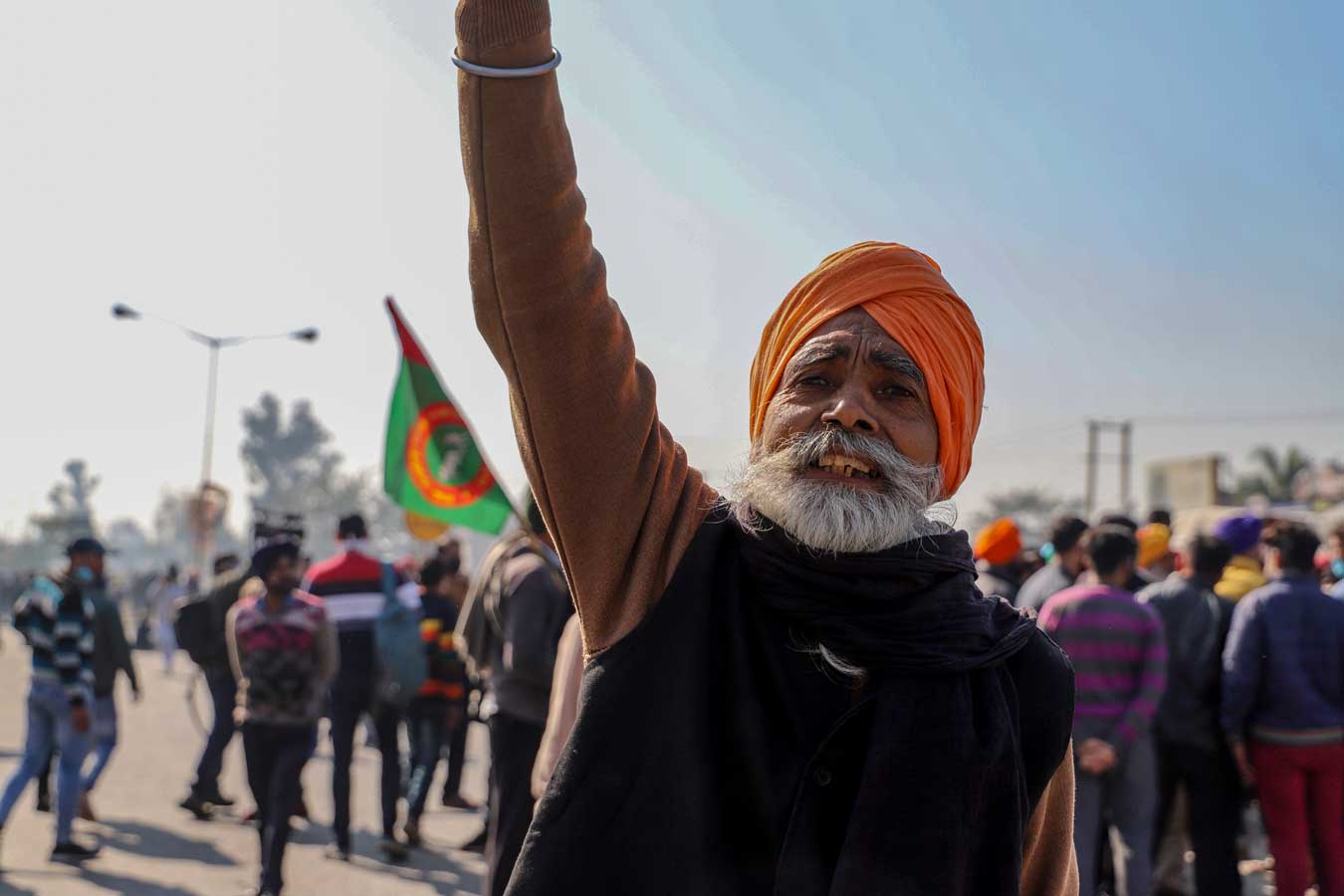Farmers’ protest: Indian farmers let down by government on all counts
It’s been three days now that farmers from Punjab, Haryana, Rajasthan and Uttar Pradesh have been marching towards Delhi and are now in Delhi protesting against the three farm laws that were passed in September.
The farmers say that the laws that concern them were passed without even consulting any farmer body. “When they introduced the three laws, first of all not a single farmers’ organisation in the country asked them to bring such ordinances. When they brought the bills in the Parliament, they passed them in a very undemocratic fashion in the Rajya Sabha where the government does not have a majority,” Sunilam from Kisan Sangharsh Samiti and a former MLA from Madhya Pradesh tells Media India Group.
Kiran Kumar Vissa, a prominent farmer leader from Telangana, says that the government needs to stop telling the farmers what is good for them. “What we are telling the government is that we don’t want them or anyone to come to us to explain how these laws are good for the farmers. Farmers’ organisations have already had two meetings with the government and instead of listening to the farmers, the government is trying to tell the farmers what is good for them, but the farmers know already what is good for them and what is not good for them,” Vissa tells Media India Group.
Sunilam says the bills that were meant to have empowered and enriched Indian farmers by addressing their key concerns, would simply reinforce the conditions that have kept an overwhelming majority of Indian farmers amongst the poorest sections of the Indian society.
European dreams
The farmers bristle at suggestions that the farm bills would help Indian farmers as they have been based on the best practices being in key farm countries like the European Union, United States or Canada. They say that even if the government was sincere in following the developed country model in farming, it ought to have adopted the entire model. “So what we want is that if you are actually following the European Union and United States model in farming, then you must provide the same kind of subsidies that the EU or the US provide to their farmers. But, here, with the three farm laws they want to do away with all the subsidies,” says Sunilam.
There is no comparison between an Indian farmer or his European or American counterpart, beginning with the sheer number of people or the proportion of the population that depends upon farming as the principal source of livelihood. There are estimated to be about 10.5 million farms with 12 million people dependent upon them. In the United States, just over two million farms employ 2.6 million people, while in India over 800 million people depend largely on farming for livelihood. Indian farmers also have the dubious distinction of being the smallest landholders in main farming countries. The average landholding for an Indian farmer is just 1.15 hectares while an average farming family in the US holds 180 hectares and its European counterpart 50 hectares.
The EU and the US, pretty much like any other major developed nation, splurge generously on their farmers, one of the most pampered sections of developed nations. Even though the average American farmer had an income of USD 72,481, about 15 pc more than the national average, the US government spends close to USD 65 billion every year in farm subsidies and is extremely protective of its producers from cheaper imports and the EU spends over EUR 50 billion a year even though the average farm income is well over EUR 36,000 a year.
Privatisation of farming and farm markets
Another major refrain of the farmers against the new farm laws is that it opens up the sector entirely to large companies, making market domination and distortion a distinct possibility. Hitherto, even though private buyers and companies were allowed to purchase from the farmers, there were strict limits imposed on the buyers in order to prevent market domination by any one or a cartel of buyers. But the farmers say the new law removes all controls and limits on the participation of companies, notably the large ones, who can squeeze other players from the market and then impose their conditions on the farmers. Farmers say that instead of dealing with many small buyers, between whom they could arbitrage, now they would be face to face with behemoths like Adani, Ambani or Walmart whose purchasing power can easily push every other competitor out of the market. That is a nightmare scenario for most farmers.
“These corporates have already taken over the seeds, fertiliser and pesticide business and now they want to take over the lands of the farmers. They are privatising and globalising farming sector in India and want to hand over the whole farming sector to the private sector so that is our fight which is on two accounts. One is with the large corporates, domestic or multinational, and second fight is with the Modi government,” says Sunilam.

Unlike farmers of the rich nation, the wealth of Indian farmers is way below the average (MIG photos/Aman Kanojiya)
Government lets down farmers at WTO
The farmers say the government also let them down during the global trade negotiations when it agreed to make a huge concession on negotiating on farming, without safeguarding the interests of the farmers. The farmers say that the government ought to review the concessions made to the developed nations and install adequate protection for the Indian farmers who have suddenly found themselves competing with cheap imports in the Indian market. “Instead of helping the Indian farmers boost their exports and hence be able to compete globally, the government has opened the floodgates for cheap imports of products like apples, almonds or even oranges from countries like the US and EU where the farmers receive huge assistance from their governments,” says Sunilam.
One way to boost the prospects of the Indian farmers is to enhance their subsidy. However, Sunilam says, instead of increasing farm subsidies, the current government has been lax in enforcing even the minimum support price, which should be at least 1.5 times the total input cost of the farmer, in order for farming to be viable. “In the last few years, throughout the Modi government what we have seen is that the crops always consistently sell for anywhere between 10-30 pc below the minimum support price. So, the first thing that the farmers need if they want to come out of poverty and if they want to get enough income is that at least the minimum support price which means that the MSP should be implemented. So that is the first demand of the farmers and this is the one that will actually improve the incomes of the farmers tremendously. Because even a 10 pc increase in the price that they get increases their income by almost 40-50 pc. So, if farmers need to get out of poverty, they need remunerative prices for their produce. And though the MSP regime has been there it’s been only there on paper we are demanding that on all the 24 crops on which MSP is declared the farmers should get it as a right,” says Vissa.
Farmers in the developed nations have reached their current status and wealth only due to decades of enormous subsidies and protectionism by their governments. But even now many of them feel threatened by imports even from the world’s poorest nations and are regularly out on the streets demanding financial aid or action against large buyers. Prime Minister Narendra Modi has called the farm bills as a moment of freedom of Indian farmers. But let alone liberation, most Indian farmers fear that they may soon end up being enslaved by large companies, Indian or overseas that are bound to dominate the Indian marketplace unless the farm laws are annulled. For most farmers, it is a fight to the finish.










